Who is the new US special envoy for Iran?
The Joe Biden administration has named Robert Malley as the US special envoy for Iran, a decision that drew a strong backlash starting even days before it was officially announced. However, it remains unclear in what direction the US policy toward Iran will be headed during his term.
Malley was the lead US negotiator in the Barack Obama administration when the Iran nuclear agreement known as the Joint Comprehensive Plan of Action (JCPOA) was reached on July 14, 2015 between Tehran and six world powers, including the US, Russia, China, France, Britain and Germany.
During the four years of the Trump administration, he was a staunch critic of the Trump team’s Iran policy, which began with a threatening tone against Iran, continued with the US withdrawal from the JCPOA, and ended with Tehran-Washington tensions at their peak.
Malley has a long relationship with US Secretary of State Antony Blinken, dating back to when they were high school classmates in France, and continuing through the Obama administration, during which he held top positions regarding Washington’s Middle East policy and played a key role in the negotiation of the nuclear accord.
He also served in the Bill Clinton administration as Director for Democracy, Human Rights and Humanitarian Affairs at the National Security Council, and as special assistant to the president for Arab-Israeli affairs.
Malley, the former president and CEO of the International Crisis Group who stepped down on Friday after leading the organization for three years, was also an adviser to Senator Bernie Sanders’ 2020 presidential campaign.
During Donald Trump’s tenure, Malley was critical of the hawkish stance of Trump’s administration toward Iran and the US role in the so-called normalization deals between Israel and Arab countries, among other things. He has also voiced criticisms of Israel and some Arab countries of the region, leading to accusations that he is antagonistic toward the regime.
In a Foreign Policy column he co-authored months before Joe Biden’s victory in the presidential election, Malley urged Biden to warn Israel against plans to annex parts of the West Bank and cut the United States’ financial support of the Israeli regime.
“Even as the United States continues to support Israel’s security, a President Biden could explore ways of deducting any money spent on the annexed territories from generous US assistance, consistent with the long-standing US policy of deducting spending on Israeli settlements in the West Bank from US loan guarantees,” the article reads.
If such a policy were made clear, any decision by Israel "to nonetheless go forward with annexation would be a sign that it felt secure enough to forgo a portion of US assistance.”
Back in 2018, Malley said Qatari officials had told him that their country had been threatened with invasion by Saudi Arabia and the United Arab Emirates.
Saudi Arabia, the UAE and their regional allies severed diplomatic relations with Qatar in 2017 and laid a siege against the country. They demanded that Qatar reduce diplomatic relations with Iran, stop military coordination with Turkey and close Al Jazeera.
“There is little doubt that senior Qatari officials with whom I spoke were convinced — or at least acted as if they were convinced — that Saudi Arabia and the UAE had been planning a military attack on their country that was halted as a result of US intervention,” Malley told The Intercept.
He has also decried the Trump-ordered assassination of Iran’s top anti-terror commander General Qassem Soleimani, which was carried out in a drone strike in Baghdad on January 3, 2020.
“For a whole host of reasons, at a time when the US has in their eyes virtually declared war on them with the killing of Qassem Soleimani, they can’t afford not to react,” he said of Iran, days before the Islamic Republic attacked an American base in Iraq with a barrage of missiles.
“Even though we may not know the when or the what or the where, it’s clear that there will be an Iranian response. And that’s where the notion of deterrence really falls flat because Iran will respond, at which point one imagines that the US will want to respond as well,” he said.
Malley faces strong opposition
It was Jewish Insider that initially reported on January 20 that Malley was being considered to lead the Biden administration’s Iran policy.
Soon afterward, some Republicans and anti-Iran hawks attacked Malley for being too soft on Iran and too critical of Israel, while Democrats and progressives generally expressed optimism over his possible appointment.
In a tweet on January 22, Republican Senator Tom Cotton voiced concerns over the matter, claiming Malley had a track record of sympathy for Iran and animus towards Israel.
“It’s deeply troubling that President Biden would consider appointing Rob Malley to direct Iran policy,” Cotton wrote.
It’s deeply troubling that President Biden would consider appointing Rob Malley to direct Iran policy. Malley has a long track record of sympathy for the Iranian regime & animus towards Israel. The ayatollahs wouldn’t believe their luck if he is selected. https://t.co/caxHhiXjKn
— Tom Cotton (@SenTomCotton) January 22, 2021
Republican Congressmen Joe Wilson and Greg Steube soon followed suit, with the former claiming – without any evidence – that Malley has close ties with Iran, Syrian President Bashar al-Assad, and Palestinian resistance movement Hamas.
The Zionist Organization of America, a right-wing pro-Israel group, described Malley’s views as “extremely dangerous for the United States and our allies.”
New York Times columnist Bret Stephens wrote on Tuesday that Malley's appointment would signal that, on the things that matter most, Biden’s foreign policy will be coldly transactional.
Meanwhile, Israeli officials have already warned the Biden administration against rejoining the nuclear deal, with the regime’s army chief of staff lieutenant general Aviv Kochavi saying he had ordered the military to develop plans for striking Iran’s nuclear program.
In remarks on Tuesday, Kochavi warned the Biden administration against rejoining the nuclear deal, which was abandoned by the Trump administration in May 2018, claiming that Iran would someday use a nuclear weapon against Israel.
Malley receives backing
In response to the backlash, pro-dialog figures and politicians lauded Malley’s appointment. Two hundred foreign policy experts and 29 organizations in a statement on Thursday voiced support for the appointment.
Sanders, in a post on his Twitter account, described Malley as an “extremely knowledgeable expert” who would promote US security “through diplomacy rather than war.”
Rob Malley is an extremely knowledgeable expert with great experience in promoting U.S. security through diplomacy rather than war. He would be an excellent choice for the role of Iran envoy. https://t.co/hdphrfXOGT
— Bernie Sanders (@SenSanders) January 22, 2021
Federica Mogherini, who was the EU foreign policy chief when the JCPOA was inked, wrote via Twitter that working together with Malley in the International Crisis Group think tank and on the nuclear agreement has been great.
Others also lauded Malley as a great diplomat.
“Rob Malley is an extraordinary diplomat, a brilliant strategist, and a profoundly decent human being,” said Ben Rhodes, former deputy national security adviser under Obama.
Charles Dunaway, an American political commentator based in Oregon, responded to Stephens’ article, saying it is “indicative of the struggle within the Biden White House and the US political class on Iran policy.”
“If confirmed, Malley would join two other important members of the national security team that are seen as having a more balanced view of Iran: the incoming CIA Director, William J. Burns, the new national security advisor Jake Sullivan, and the new Deputy Secretary of State, Wendy Sherman, who was involved in negotiations for the JCPOA,” Dunaway told Press TV.
US Democratic lawmaker Ro Khanna quoted former President Jimmy Carter as telling him to “listen to Rob Malley,” when he sought Carter’s guidance on a range of issues in 2019.
“I was speaking to President Carter about North Korea and forging a path for a peace deal,” Khanna recalled in an interview, according to Politico. “And completely unprompted, Carter said the one person you need to consult with on issues of human rights, diplomacy and foreign policy is Rob.”
Murtaza Hussain of The Intercept wrote in a piece that the attacks lodged against Malley were based more on character assassination than substantive argument.
“Many of the attacks against Malley fall apart upon scrutiny — if they are even based on things he has said or done,” he noted. “Cotton, for example, provided no justification at all for his statement that Malley shows ‘animus towards Israel.’”
Hussain added, “Other attacks seem to be based on selective editing and innuendo.”
Future of Iran nuclear deal remains uncertain
Meanwhile, the future of the nuclear agreement remains uncertain as the Biden administration has failed to take practical measures to lift the sanctions that were imposed under Trump’s “maximum pressure” policy, in spite of the fact that Biden and other Democrats had repeatedly criticized the Trump administration’s withdrawal from the deal and its sanctions on Iran prior to the election.
Biden administration officials, including Blinken, have said Iran must first return to full compliance with its commitments under the deal before the US does the same.
Iranian officials, for their part, have rejected the US demand, urging Washington to unconditionally remove all the sanctions that were lifted under the Trump administration. Tehran has also said the lifting of the sanctions – rather than a US return to the JCPOA – is the first step that needs to be taken.
Iranian Foreign Minister Mohammad Javad Zarif tweeted on Thursday that the US “violated” the JCPOA, “blocked food/medicine to Iranians” and “punished adherence” to UN Security Council Resolution 2231, which endorses the accord, whereas Iran “abided by JCPOA” and “only took foreseen remedial measures.”
“Now, who should take 1st step? Never forget Trump's maximum failure," Zarif said, responding to a tweet by Blinken who said a day earlier that the US will only return to the Iran nuclear deal once Tehran meets its commitments.
“Iran is out of compliance on a number of fronts. And it would take some time, should it make the decision to do so, for it to come back into compliance and time for us then to assess whether it was meeting its obligations,” Blinken claimed during a news conference.
“We’re not there yet, to say the least,” he added.
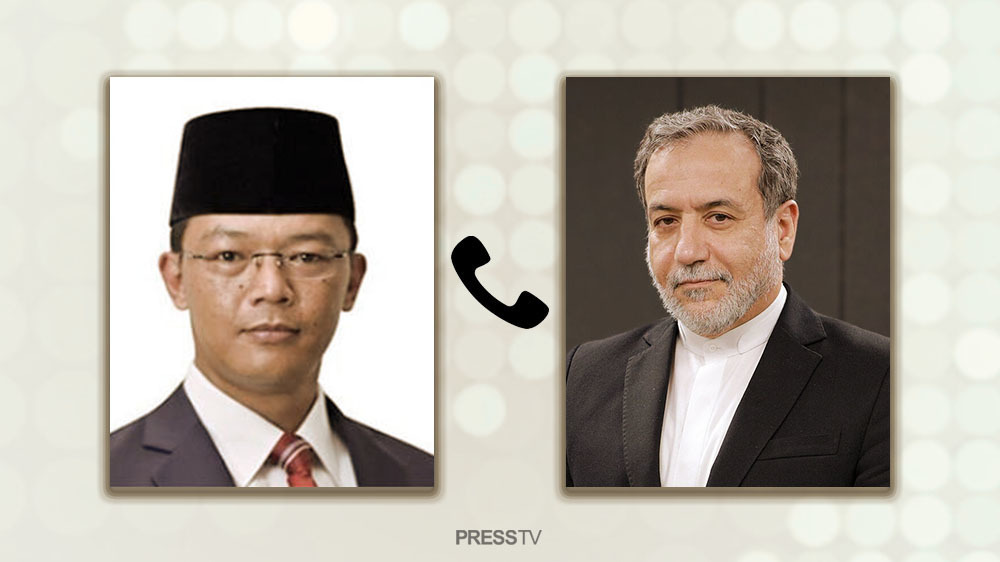
Indonesia, Iran stress commitment to expanding relations
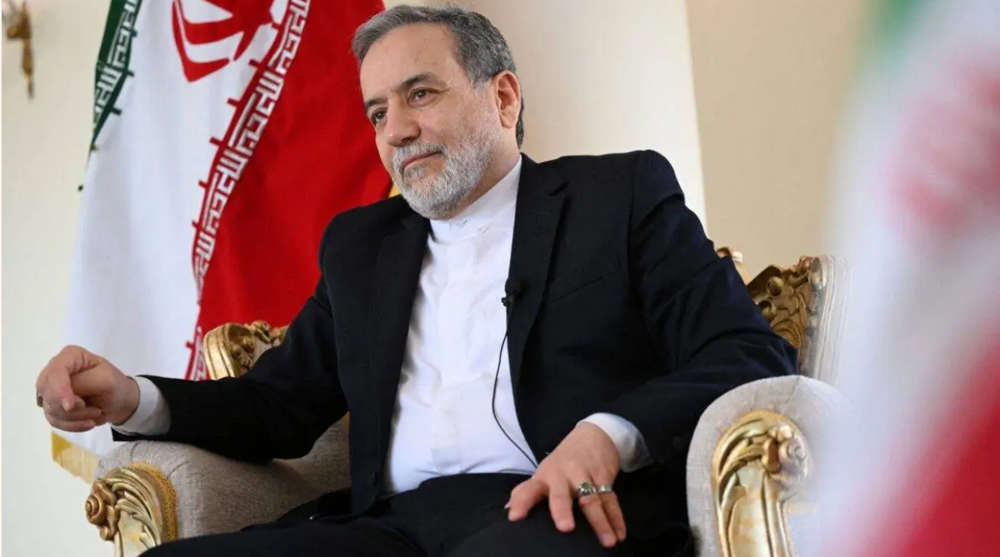
Iran FM says ready to visit Paris, Berlin, London for diplomacy
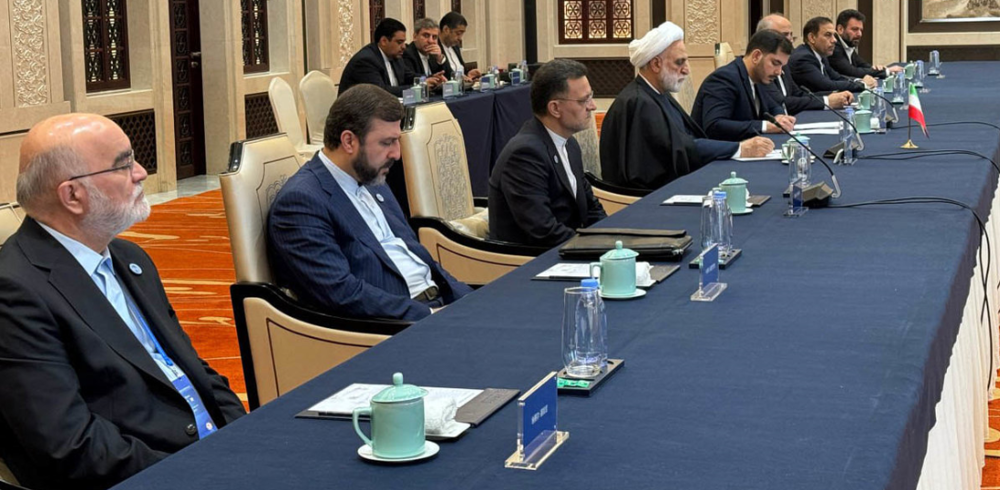
Iran elected to chair judicial summit of Shanghai group in 2026
Trump poised to sell arms worth $100 billion to Saudi Arabia: Report
'War is defeat': Pope Francis will be remembered for his moral stand on Gaza
Cases of Esfandiari and Hazamy: France’s quiet war on Muslim, Iranian, pro-Gaza voices
VIDEO | India-Pakistan tension
Indonesia, Iran stress commitment to expanding relations
Israel threatens 'larger' war on Gaza with new evacuation orders
Senior diplomats from Iran, Russia, China hold talks with IAEA chief
Two US marines accused of raping Japanese women in Okinawa










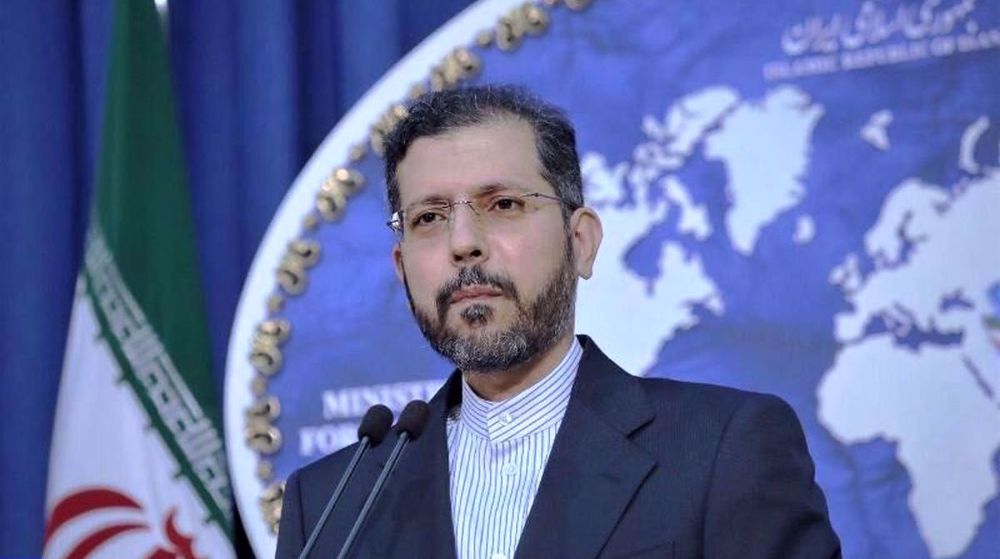
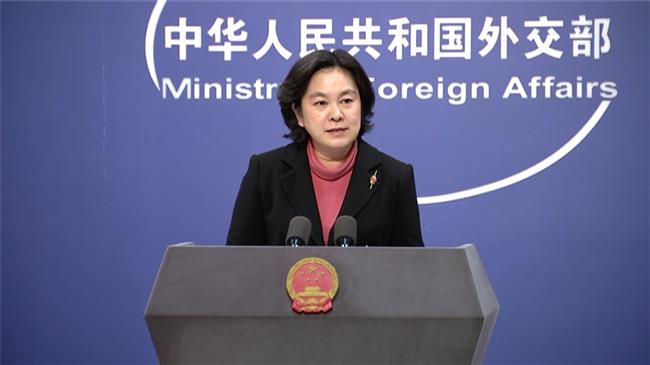
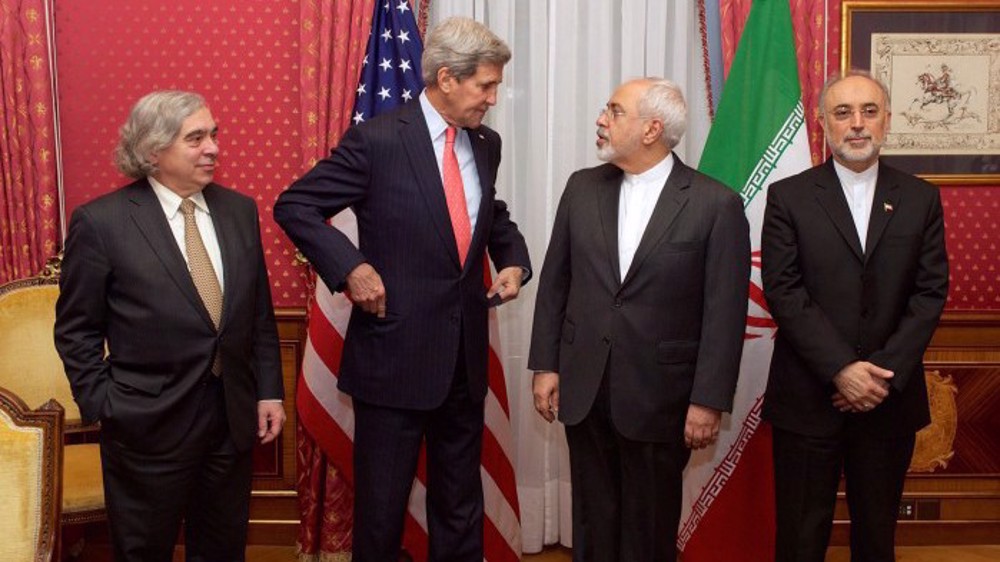



 This makes it easy to access the Press TV website
This makes it easy to access the Press TV website